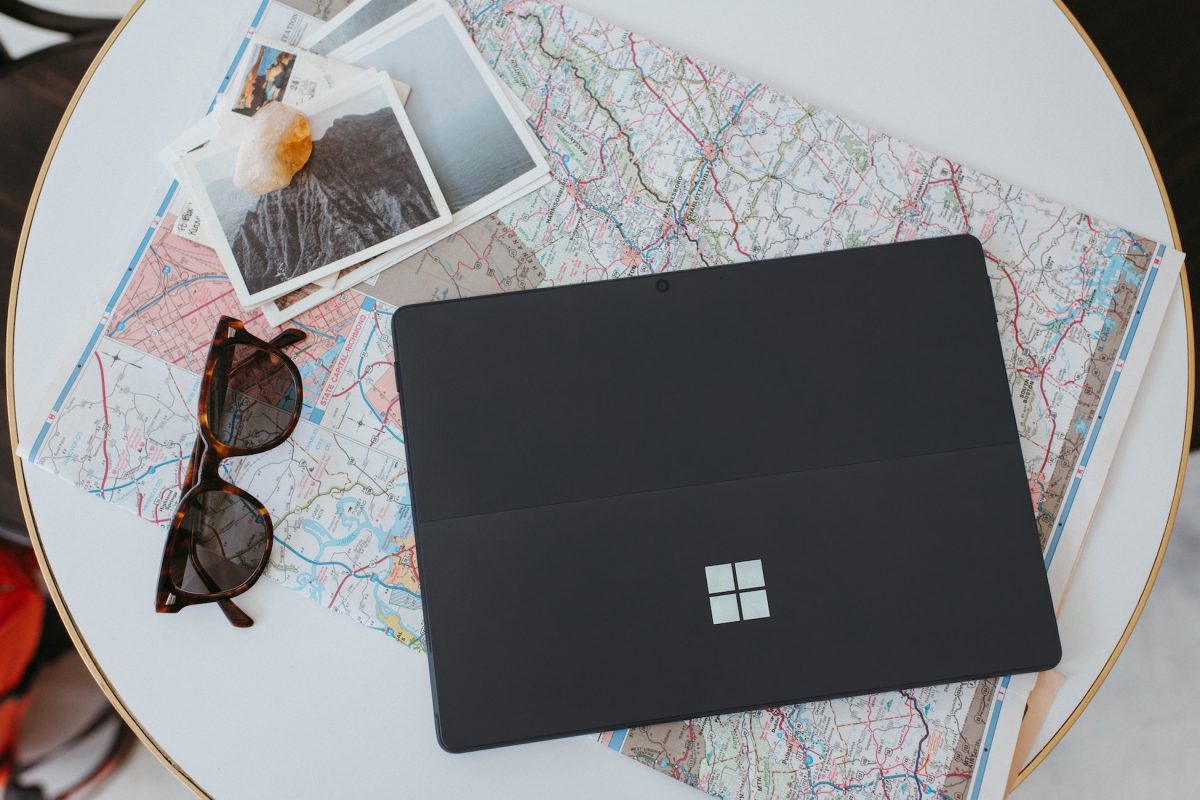In a world where your money is as important as your morning latte, choosing the right type of account is a decision that can shape your financial future faster than you can say “side hustle.” Welcome to the ultimate showdown: Deposit Account vs Custodial Account. Whether you’re a millennial juggling student loans and avocado toast or a Gen Z adventurer prepping for a financially savvy future, this in-depth guide is your ticket to understanding the nuances between these two financial tools and making choices that set you on the right path.
Deposit Account Vs Custodial Account Table of Contents
Unpacking the Basics: What’s a Deposit Account?
Custodial Accounts: What’s Their Deal?
Deposit Account vs Custodial Account: The Head-to-Head Comparison
Deep Dive: The Varieties of Deposit Accounts
Exploring Custodial Accounts in Detail
Weighing the Pros and Cons: Deposit Account vs Custodial Account
Navigating Taxes, Fees, and Regulations
Real-Life Scenarios: How Deposit and Custodial Accounts Work in Practice
Practical Tips for Choosing the Right Account for Your Needs
Tech Tools and Innovations: Digital Banking for the Modern Age
Tax Considerations and Legal Implications
Resources and Community Support: Your Next Steps
Future-Proofing Your Finances: Making the Most of Both Worlds
Breaking Down the Jargon: A Quick Glossary
Expert Opinions: What Financial Advisors Say
Deposit Account vs Custodial Account FAQs: Your Questions Answered
Unpacking the Basics: What’s a Deposit Account?
A deposit account is that trusty bank account you open to stash your cash – the unsung hero behind your weekly takeout splurges and impromptu online shopping sprees. It comes in various flavors, including checking accounts, savings accounts, money market accounts, and even certificates of deposit (CDs). Designed primarily for everyday financial transactions, deposit accounts allow you to deposit and withdraw money with ease. They’re insured, regulated, and provide the familiar services you rely on, like debit cards, online banking, and sometimes even rewards.
Key Features of Deposit Accounts
Think of deposit accounts as your financial Swiss Army knife – versatile, accessible, and invaluable. Here are some key features:
- Accessibility: They let you withdraw money anytime, whether via ATMs, checks, or digital transfers.
- Interest Earnings: Savings accounts and CDs offer interest, letting your money work even when you’re binge-watching your favorite series.
- Insurance: With FDIC or NCUA backing, your deposits are secure up to certain limits, adding that extra layer of safety.
- Flexibility: From paying bills to receiving direct deposits, deposit accounts cover the financial spectrum of daily life.
In short, deposit accounts are a must-have for managing both your routine expenses and saving for those spontaneous weekend getaways.
Custodial Accounts: What’s Their Deal?
Now, let’s talk about custodial accounts. If deposit accounts are the all-access pass for everyday finances, custodial accounts are like financial incubators designed to nurture and grow a minor’s nest egg. Managed by an adult custodian, these accounts hold assets on behalf of a minor until they reach the age of majority. They’re perfect for parents or guardians looking to jumpstart a child’s financial journey.
Not Just for Trust Funds: Essential Elements of Custodial Accounts
Despite the common misconception that custodial accounts are reserved only for the ultra-wealthy, they’re surprisingly commonplace and offer several unique benefits:
- Ownership Transfer: Once the minor reaches legal adulthood, assets in the custodial account swing over to them—like a financial baton pass.
- Investment Opportunities: Custodial accounts aren’t just for storing cash; they can hold stocks, bonds, and mutual funds, setting the stage for long-term growth.
- Flexible Contributions: Contributions can come from multiple sources, making these accounts a popular choice for gifts and educational savings.
- Simplicity: Setting up a custodial account is relatively straightforward, with the best institutions offering online and face-to-face options.
Whether you’re a parent planning your child’s future or a young person getting a head start on personal finance, custodial accounts offer a means to grow wealth in a structured, regulated environment.
Deposit Account vs Custodial Account: The Head-to-Head Comparison
Let’s dive into a head-to-head matchup that breaks down the key differences. This isn’t just a battle of acronyms; we’re talking about real-life features that affect your financial wellbeing.
Who’s in Control?
The primary difference lies in control. With a deposit account, you’re the captain of your financial ship. You make decisions, set deposits, and withdraw funds as needed. In contrast, a custodial account is managed by an appointed custodian (usually a parent or guardian) until the minor hits adulthood, at which point the control is transferred.
Purpose and Usage
Deposit accounts are built for everyday use—paying rent, grabbing coffee, or splurging during Black Friday. They are versatile and designed around your daily financial needs. Custodial accounts, on the other hand, are structured with the future in mind. They’re perfect for long-term savings and investments for minors, serving as a head start on building wealth.
Regulatory Framework
Deposit accounts are heavily regulated by banking laws and carry insurance like FDIC or NCUA protection. Custodial accounts, while also regulated, follow specific state and federal laws designed to protect a minor’s financial interests, ensuring a smooth transition of control.
Tax Considerations
Tax treatment can vary quite significantly. Interest earned on deposit accounts is typically taxable as personal income. With custodial accounts, however, the tax responsibilities fall on the minor (or the parent, depending on the situation), and there are special rules that apply, particularly when it comes to investment income.
In essence, if you want full autonomy over your finances, the deposit account is your go-to. But if you’re thinking about laying the groundwork for the next generation, custodial accounts offer a structured and legal avenue to start them off right.
Deep Dive: The Varieties of Deposit Accounts
Not all deposit accounts are created equal—each comes with its own set of perks and quirks, appealing to different needs. Let’s break them down:
Checking Accounts
The everyday workhorse of bank accounts, checking accounts make moving money a breeze. With a checking account, you can write checks, use debit cards, and perform mobile banking replete with notifications and budgeting tools. While they usually offer little to no interest, the convenience factor makes them indispensable.
Savings Accounts
Looking to set aside cash for that emergency or future travel adventure? Savings accounts are designed for this purpose. They typically offer interest, albeit at modest rates. The catch? They might limit your monthly withdrawals, nudging you to keep your money invested for growth rather than spent on another online shopping binge.
Money Market Accounts
Money market accounts combine the best of both worlds: the liquidity of checking accounts with the interest-bearing features of savings accounts. They often require a higher minimum deposit but reward you with higher interest rates. It’s like getting the VIP pass for your cash.
Certificates of Deposit (CDs)
CDs are the tortoise of deposit accounts. They lock your money in for a predetermined period—anywhere from a few months to several years—but in return, you often receive significantly higher interest rates. Just remember, early withdrawals might incur penalties, so think of CDs as your disciplined savings plan.
Each type of deposit account is designed to cater to different financial habits and goals, making them versatile tools in your money management arsenal.
Exploring Custodial Accounts in Detail
Custodial accounts deserve a closer look because they’re not just about saving money—they’re an introduction to financial literacy for the young. Here’s what sets them apart:
What Can You Hold in a Custodial Account?
Unlike standard deposit accounts, custodial accounts aren’t limited to cash. They can hold a rich mix of assets such as stocks, bonds, mutual funds, and even sometimes alternative investments. This flexibility makes them a smart choice for long-term financial planning, whether you’re setting up a college fund or a rainy day stash.
Advantages for Minors and Their Families
- Early Start in Investing: Custodial accounts provide young individuals a head start on learning about and benefiting from investments, giving them financial literacy a leg up.
- Gifting Made Easy: Family members, friends, and even special occasions like birthdays can contribute to a custodial account, streamlining the process of wealth-building from an early age.
- Tax Benefits and Considerations: While tax rules exist, they’re structured in a way to protect the minor’s future earnings and encourage wise, long-term investment strategies.
By understanding the facets of custodial accounts, you’re better equipped to decide whether they align with your financial goals—be it preparing for higher education, first-time car purchases, or laying the foundation for long-term financial success.
Weighing the Pros and Cons: Deposit Account vs Custodial Account
When it comes to managing your money, there isn’t a one-size-fits-all solution. Both deposit and custodial accounts come with their own set of pros and cons. Here’s a breakdown to help clarify your decision-making process.
Deposit Accounts: The Benefits and Drawbacks
Pros:
- Full Control: You make all the financial decisions without waiting for anyone’s approval.
- Flexibility: Easily accessible funds, ideal for day-to-day transactions and emergencies.
- Variety: Options range from checking to high-yield savings accounts, catering to different financial needs.
- Security: FDIC or NCUA insurance protects your money.
Cons:
- Limited Investment Options: Most deposit accounts do not offer substantial growth opportunities compared to investment accounts.
- Lower Interest Rates: Routine accounts like checking and savings might offer minimal interest accumulation.
Custodial Accounts: The Benefits and Drawbacks
Pros:
- Early Financial Education: They’re a great tool for teaching financial literacy and savings habits early.
- Diversification of Assets: Hold a variety of investment instruments from stocks to mutual funds, allowing growth potential.
- Structured Growth: They offer a systematic way to build wealth for minors, setting them up for a stronger financial future.
Cons:
- Limited Access: The custodial nature means minors can’t access the funds until they reach legal adulthood, which might be restricting in certain situations.
- Control Transfer: Once the minor turns 18 or 21 (depending on state law), control automatically passes to them, potentially leading to less disciplined usage.
- Tax Implications: Navigating the tax rules for investment income in custodial accounts can be a bit more complex, often requiring professional guidance.
Ultimately, the choice depends on your financial goals. If you’re looking for a day-to-day tool to keep your finances agile, deposit accounts deliver. If you want to invest in the future of someone you love—whether that’s your child or a young protege—custodial accounts offer a robust, future-facing alternative.
Navigating Taxes, Fees, and Regulations
Nothing kills the vibe of financial freedom faster than unexpected fees and confusing tax rules. Let’s cut through the jargon:
Tax Treatment
With deposit accounts, any interest you earn is generally taxed as personal income. This might not set your hair on fire, but if you’re earning a significant amount of interest, it could affect your tax bill. With custodial accounts, tax implications can be a bit more intricate. For instance, the “kiddie tax” rules might apply, meaning that unearned income in a custodial account could be taxed at the parents’ rate if it exceeds certain thresholds. Keeping track of these details is key to ensuring your financial plan remains on track.
Fees and Minimum Balances
Both deposit and custodial accounts can come with fees—maintenance fees, overdraft fees, and minimum balance requirements. Fortunately, many modern banks and credit unions offer fee-free options designed to appeal to digitally savvy customers who demand transparency. Always read the fine print and compare fees before settling on an account.
Regulatory Oversight
Deposit accounts are generally subject to the oversight of regulatory bodies like the FDIC or NCUA, ensuring your money stays safe while you navigate life’s twists and turns. Custodial accounts, meanwhile, adhere to regulations designed to protect minors’ financial interests, meaning there might be additional paperwork involved but also an added layer of security.
Real-Life Scenarios: How Deposit and Custodial Accounts Work in Practice
Let’s take a glimpse into real-life situations where deposit and custodial accounts shine. Picture this: Alex, a recent college grad, relies on a checking account for daily expenses, bills, and spontaneous weekend outings. Their checking account is their financial command center—quick, accessible, and reliable. Now, meet Jamie, who just opened a custodial account for their nephew. With contributions from family and the opportunity to invest in diversified assets, Jamie is setting the stage for the nephew’s long-term financial growth.
Case Study: The Young Professional’s Journey
Alex’s checking and savings accounts have enabled them to manage student loan repayments, save for a down payment on a sleek new ride, and invest in an emergency fund to prepare for life’s unexpected detours. With features like mobile banking, real-time alerts, and integration with budgeting apps, Alex finds that deposit accounts are perfectly suited for their fast-paced lifestyle.
Case Study: Investing in a Brighter Future
Meanwhile, Jamie’s custodial account isn’t just a savings tool—it’s an educational vehicle. With an account that holds a mix of stocks and bonds, Jamie’s nephew is set to learn about the power of compound interest from a young age. Over time, the investments in the custodial account will ideally grow, giving the young one a head start in financial literacy and wealth accumulation.
These cases demonstrate how each account type can be tailored to specific life goals—whether that’s managing everyday expenses or preparing for future milestones.
Practical Tips for Choosing the Right Account for Your Needs
Here are some down-to-earth tips to help you decide which type of account is right for you, whether you’re setting up your own financial foundation or planning for someone else’s future:
For Deposit Accounts
- Assess Your Spending Habits: If you’re making multiple daily transactions, a checking account with unlimited withdrawals is ideal.
- Set Savings Goals: A dedicated savings account can help you target specific goals like building an emergency fund or saving for a big purchase.
- Look for Low Fees: In a world of subscription services and hidden charges, search for accounts that offer low or no fees.
- Mobile-First Features: In today’s digital age, opt for banks that offer excellent mobile app interfaces and robust online support.
For Custodial Accounts
- Future Planning: If you want to invest in a minor’s future—whether for college, a first car, or just to give them a head start—consider a custodial account.
- Diversification: Choose an account that offers a variety of investment options, so you’re not putting all your eggs in one basket.
- Understand the Legal Implications: Make sure you’re aware of the transfer of control rules and tax implications associated with custodial accounts.
- Consult a Financial Advisor: If the idea of setting up a custodial account feels labyrinthine, don’t hesitate to get advice from a professional.
Armed with these tips, you can confidently walk into your bank or consult online resources knowing that you’re making an informed, strategic decision about which account best serves your financial lifestyle.
Tech Tools and Innovations: Digital Banking for the Modern Age
Technology is revolutionizing the way we manage money. Today’s digital banking solutions are designed to match the pace of your busy life, whether you’re managing a deposit account or monitoring a custodial account’s investment portfolio.
Mobile Apps and Online Portals
Gone are the days of waiting in line at your local bank. Mobile apps allow you to check balances, deposit checks via your smartphone camera, and even set up automated savings contributions. For Gen Z and millennial users, these features offer an unparalleled level of convenience.
Budgeting and Financial Management Tools
Digital tools can link directly to your deposit accounts, offering insights into your spending patterns and recommending ways to save. With features like customizable alerts and spending categorizations, you’re empowered to manage your money with confidence—whether you’re trying to cut back on impulse buys or track your investments.
Enhanced Security Features
Security in the digital space is non-negotiable. Modern banks use multi-factor authentication, biometric verification, and real-time fraud alerts to keep your money safe. These security measures are especially crucial for deposit accounts that see daily transactions.
Embracing these tech tools not only simplifies your banking experience but also helps you stay ahead in the digital age of finance.
Tax Considerations and Legal Implications
Whether you’re using a deposit account or managing a custodial account, the tax implications can sometimes feel as tricky as deciphering cryptocurrency lingo. Here, we break down the essentials without the jargon that leaves you more confused than enlightened.
Deposit Account Tax Basics
For deposit accounts, the interest earned is generally taxable. This means that if you’re earning interest on your savings or money market account, you might need to report it on your annual tax returns. The simplicity here is that these earnings are typically treated as ordinary income.
Custodial Account Tax Nuances
Custodial accounts can involve a bit more complexity when it comes to taxes. The “kiddie tax” rule, for example, may require that unearned income above a certain threshold be taxed at the parent’s rate. This means that while the account is managed in the best interests of the minor, understanding the specific tax rules—and possibly consulting a tax expert—is essential.
Staying informed on these tax considerations ensures that both your daily finances and long-term investments can thrive without any unwanted surprises during tax season.
Resources and Community Support: Your Next Steps
Transitioning from curiosity to informed action doesn’t have to be a solo journey. Whether you’re leaning towards a deposit account for daily ease or a custodial account for long-term planning, there are plenty of resources and vibrant communities ready to support your financial journey.
Online Communities and Forums
Platforms like Reddit’s r/personalfinance, online banking review sites, and financial blogs offer invaluable insights, real-user reviews, tips, and success stories. Engaging with these communities provides you with firsthand accounts of what works best for individuals just like you.
Financial Planning Tools
Explore budgeting apps, investment simulators, and comparison tools to see what kind of account fits your lifestyle. Many of these platforms offer free trials or basic features at no cost—perfect for testing the waters before making a deeper commitment.
Local Workshops and Webinars
Look out for local financial literacy workshops, webinars, or community college courses—these resources are often led by experts in deposit and custodial account management. Learning in a collaborative environment can demystify the complexities of financial planning and empower you with actionable knowledge.
Consulting Professionals
If the landscape of account options feels overwhelming, consider scheduling a consultation with a financial advisor or a banking specialist. These professionals offer a personalized approach, ensuring your choice aligns with your current needs and future aspirations.
Remember, your financial journey is uniquely yours. Leveraging these resources and engaging with a supportive community can transform the daunting task of managing money into a confident, informed, and even enjoyable experience.
Future-Proofing Your Finances: Making the Most of Both Worlds
Sometimes, the smartest strategy isn’t choosing one account over the other—it’s understanding how they can complement each other. Imagine using a deposit account for day-to-day transactions and short-term needs while simultaneously leveraging a custodial account to invest in the future, be it your child’s, a family member’s, or even your future self.
Diversification Is Key
In the same way that a balanced diet benefits your overall health, diversifying your financial toolkit by adopting both deposit and custodial accounts can provide the flexibility and security you need for both the present and the future. Balance your liquid assets with long-term investments to navigate life’s uncertainties and opportunities with confidence.
Building a Legacy
For those looking to secure a legacy, especially if you’re planning for your children or younger relatives, custodial accounts are a great way to introduce them to saving and investing early on. Combined with deposit accounts that keep your finances agile, you create a holistic financial system that can adapt to changing life circumstances.
Future-proofing your finances means planning not just for immediate needs, but also for building enduring wealth. Think of it as setting the stage for both the now and later—balancing enjoyment with smart strategy.
Breaking Down the Jargon: A Quick Glossary
Let’s be honest: financial terms can sometimes feel like a foreign language. Here’s a quick glossary to keep you savvy during your financial adventures:
- FDIC/NCUA: Federal agencies that insure deposit accounts, keeping your money safe up to a certain limit.
- Checking Account: An account designed for frequent transactions, bill payments, and everyday spending.
- Savings Account: An account dedicated to saving money, typically earning interest while limiting frequent withdrawals.
- Money Market Account: A hybrid account offering higher interest rates and limited check-writing privileges.
- Certificate of Deposit (CD): A time-deposit account that locks your funds for a specified term with generally higher interest rates.
- Custodial Account: An account managed by an adult on behalf of a minor, allowing investments and savings until the minor gains control.
- Kiddie Tax: Tax rules that may apply to investment income in custodial accounts, often taxing unearned income above certain thresholds at a different rate.
Keep this glossary handy to navigate any confusing tides in your financial conversations.
Expert Opinions: What Financial Advisors Say
To round out our discussion, here’s what some financial experts have to say about choosing between deposit accounts and custodial accounts:
“For everyday banking, there’s no substitute for the convenience and security of deposit accounts,” notes Taylor, a seasoned financial advisor with over a decade of experience tutoring millennials on money management. “But when it comes to teaching young people about the importance of saving and investing, custodial accounts lay a critical foundation.”
Another expert, Jordan, highlights the importance of flexibility: “The decision isn’t about choosing one over the other. It’s about strategically using both to cover immediate cash flow needs while investing in long-term security. It’s financial yin and yang.”
Their insights reiterate that understanding your financial goals, lifestyle, and long-term plans is at the heart of making the best decision for your bank accounts.
Deposit Account vs Custodial Account FAQs: Your Questions Answered
We know you have questions, so here are some frequently asked questions to help clear up any lingering doubts about deposit and custodial accounts:
1. What exactly distinguishes a deposit account from a custodial account?
Deposit accounts are designed for everyday banking and allow you to perform regular transactions, while custodial accounts are set up by an adult on behalf of a minor and can include various types of investments until the minor reaches the age of majority.
2. Who has control over the funds in each type of account?
With deposit accounts, you maintain full control over your funds. In custodial accounts, an appointed custodian manages the account until the minor is legally old enough to take control of their assets.
3. Can I invest in stocks and mutual funds through both options?
Typically, deposit accounts are limited to cash and interest-bearing options, while custodial accounts allow for a diverse range of investments including stocks, bonds, and mutual funds.
4. Are there tax implications unique to custodial accounts?
Yes. Custodial accounts can be subject to the “kiddie tax” rules, meaning that investment income above a certain threshold may be taxed at a higher rate. Deposit account interest, however, is typically taxed as ordinary income.
5. Which account should I choose if I need easy access to my money?
If accessibility is your top priority, go with a deposit account. They are tailored for daily transactions and offer a high degree of liquidity.
6. When might a custodial account be more advantageous?
Custodial accounts are ideal for parents or guardians looking to start a savings or investment plan for a minor’s future, offering a controlled way to build wealth over time.
7. Can I have both types of accounts simultaneously?
Absolutely. Many savvy individuals use deposit accounts for their day-to-day financial needs while maintaining custodial accounts to nurture long-term financial growth for younger family members.
Your Journey to Financial Empowerment: The Final Word
Navigating the world of financial accounts might seem as complex as learning a new dance move for your next TikTok video, but once you get the hang of it, it’s all about striking that perfect balance between today’s needs and tomorrow’s dreams. Whether you lean toward the immediacy and flexibility of a deposit account or the long-term benefits of a custodial account, know that every smart decision you make contributes to a brighter financial future.
Embrace the journey with confidence and a dash of humor—after all, money management doesn’t have to be a snooze fest. It’s about empowering yourself with the right tools, being informed, and taking proactive steps towards achieving your financial goals. So, get out there, explore your options, and craft a financial plan that’s as unique as your favorite playlist.
Your future self will thank you for the decisions you make today, whether it’s the ease of everyday transactions or the smart, strategic investments that grow over time. Here’s to a future where your financial health is as strong as your Wi-Fi signal—and that’s saying something!













